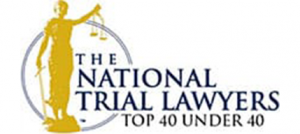Dealing with aggressive and relentless debt collectors can cause overwhelming stress and anxiety.
However, you don’t have to suffer in silence.
If debt collectors harass you or a loved one in Illinois, you have rights and protections under the Fair Debt Collection Practices Act (FDCPA).
Seek legal support and guidance to end the harassment and protect your rights.
At Kazerouni Law Group, our experienced Illinois FDCPA lawyers are here to help through this challenging situation and hold debt collectors accountable. Don’t wait any longer; reach out to us today, and let us fight for your rights as a consumer.
Why Choose Kazerouni Law Group?

Choosing the right legal representation for your FDCPA case in Illinois is essential. At Kazerouni Law Group, we offer a proven track record, experienced attorneys, a client-centered approach, and innovative litigation strategies that set us apart.
Proven Success
Kazerouni Law Group has secured over $1 billion in compensation for clients in consumer protection cases. Our success in FDCPA cases demonstrates our ability to successfully manage the complexities of the legal system and fight for the justice you deserve. This history reflects our commitment to achieving the best outcomes for our clients.
Experienced Attorneys
When you work with Kazerouni Law Group, you’ll receive dedicated legal representation from knowledgeable attorneys. Our team has extensive experience handling FDCPA cases and understands the nuances of Illinois law.
We take the time to understand your unique circumstances and tailor our approach to meet your needs, providing sound guidance every step of the way.
Client-Centered Approach
We prioritize treating every client with dignity and respect. Dealing with debt collectors can be overwhelming, and we’re committed to providing personalized, empathetic legal representation. Our team takes the time to listen to your concerns and create a customized strategy that addresses your specific goals.
No Upfront Fees
Legal representation should be accessible to everyone, regardless of financial circumstances. That’s why we operate on a contingency fee basis for most cases—you only pay if we win or reach a resolution. This eliminates financial risk, allowing you to focus on your case and well-being without additional stress.
Free Consultations
We understand that initiating legal action can be intimidating. That’s why we offer free, no-obligation consultations. During this session, we’ll evaluate your case, answer your questions, and provide a clear overview of your legal options.
Dealing With Debt Collectors and FDCPA Violations

Dealing with debt can be incredibly stressful, especially when debt collectors cross the line with harassment or illegal behavior.
Fortunately, federal laws, specifically the Fair Debt Collection Practices Act (FDCPA), protect consumers from abusive practices.
If you face harassment or unfair treatment from debt collectors, our experienced Illinois FDCPA lawyers can assert your rights and hold unscrupulous collectors accountable. Understanding common FDCPA violations, the role of an attorney, and the benefits of legal representation is critical to navigating this challenging situation.
What Is the FDCPA?
The Fair Debt Collection Practices Act (FDCPA) is a federal law enacted in 1977 to protect consumers from abusive, deceptive, and unfair debt collection practices. It outlines specific guidelines for debt collectors and provides consumers with legal recourse if those guidelines are violated.
Your FDCPA Rights
The FDCPA grants specific and vital protections to consumers pursued by debt collectors. Understanding these rights allows you to identify potential violations and take the necessary steps to protect yourself. Here are the key rights provided to consumers under the FDCPA:
Prohibition of Harassment
Debt collectors are required to treat you with respect and cannot use abusive or harassing tactics to collect a debt. It includes making repeated or excessive phone calls intended to annoy, abuse, or harass you.
Additionally, they cannot use obscene or profane language, threatening violence, or making any statements designed to intimidate or humiliate you. If a collector engages in harassment, you can report them and take legal action.
No False or Misleading Statements
Debt collectors are prohibited from using deception to coerce payment. They cannot lie about the amount of your debt, falsely claim to represent a government agency, or impersonate law enforcement.
They also cannot threaten legal action or earnings garnishment unless legally authorized and they intend to follow through. It ensures they do not manipulate or mislead consumers during the debt collection.
Respect for Privacy
Your privacy is a fundamental right under the FDCPA. Collectors are restricted in how they can communicate about your debt. They cannot discuss your debt with unauthorized third parties, such as family members, neighbors, or coworkers.
Moreover, they must avoid contacting you at inconvenient places or times, such as during work hours if your employer prohibits such calls. Ensuring your privacy reduces the embarrassment and stress associated with debt collection.
Validation of Debt
Debt collectors must provide a written validation notice within five days of their first contact with you. This notice must include details such as the amount owed, the creditor’s name, and your rights to dispute the debt.
If you request additional information or dispute the debt, collectors must stop their collection efforts until the debt is verified. This process prevents collectors from pursuing invalid or incorrect debts.
Restrictions on Contact
The FDCPA limits when and how collectors can contact you. They cannot call you at inconvenient hours, defined as before 8 a.m. or after 9 p.m., unless you have agreed otherwise.
Additionally, collectors must cease communication entirely if you provide a written request for them to stop or if you inform them that an FDCPA attorney represents you. This right helps consumers control how and when they engage with debt collectors.
By understanding and asserting these FDCPA rights, you can ensure that debt collectors treat you fairly and lawfully. If you believe your rights have been violated, seeking legal advice from an Illinois FDCPA lawyer can hold violators accountable and protect your financial well-being.
Common FDCPA Violations
Despite the protections provided by the Fair Debt Collection Practices Act (FDCPA), some debt collectors continue to flout the law in pursuit of payments. Recognizing these violations is necessary for protecting your rights and taking appropriate action. Here are the most common FDCPA violations:
Harassment and Abuse
Debt collectors often cross the line into harassment, employing aggressive tactics to intimidate consumers. In some cases, collectors may threaten to embarrass consumers publicly or involve law enforcement, even though these threats are unfounded and illegal under the FDCPA.
Misrepresentation and Deception
One of the most prevalent FDCPA violations is the use of false or misleading information. Debt collectors may misrepresent the amount owed, claim to be attorneys or government officials, or falsely threaten legal action they have no intention of taking.
These tactics try to pressure consumers into making payments, even for invalid or resolved debt. Misrepresentation violates the FDCPA and can lead to additional legal consequences for the debt collector.
Unfair Practices
Unfair practices by debt collectors include adding unauthorized fees or charges to a debt, attempting to collect on debts that have been discharged in bankruptcy, and prematurely depositing post-dated checks provided by the consumer.
Some collectors may also resort to unethical tactics, such as demanding payment for debts that have exceeded the statute of limitations or threatening to seize property without proper legal authority. These practices exploit consumers’ lack of knowledge about their rights and the laws surrounding debt collection.
Communication Violations
The FDCPA strictly regulates how and when debt collectors can communicate with consumers. Common violations include contacting consumers at inconvenient times, such as early in the morning or late at night, or failing to honor written requests to cease communication.
Debt collectors are prohibited from sharing information about your debt with third parties, including employers, neighbors, or family members, without your explicit permission. Violations of these rules can cause undue stress and embarrassment, further compounding the harm caused by unlawful debt-collection practices.
By understanding these common violations, consumers can better protect themselves against abusive debt collection practices and take action to enforce their rights under the FDCPA.
Do You Have a Valid Illinois FDCPA Case?
To determine if you have a case under the FDCPA, ask yourself:

- Did the collector violate communication rules by calling at inappropriate times or contacting you at work?
- Were there misrepresentations about the debt or false legal threats?
- Did the collector engage in harassment, such as repeated calls or abusive language?
- Was the debt properly validated within five days of initial contact?
If you answered yes to these questions, contact an Illinois FDCPA lawyer from Kazerouni Law Group.
How an Illinois FDCPA Lawyer Can Help
An Illinois FDCPA lawyer is well-versed in protecting consumers from unlawful debt collection practices and providing reliable support and advocacy to individuals facing harassment or other violations. Here’s how an FDCPA lawyer can assist:
Legal Guidance
Understanding your rights under the FDCPA can be overwhelming, especially when dealing with aggressive debt collectors. An Illinois FDCPA lawyer will explain your rights in detail and assess the specific circumstances of your case. They can identify violations of the FDCPA and advise you on the best course of action, ensuring that you’re fully informed about your legal options.
Evidence Collection
Proving FDCPA violations often requires substantial evidence. Your lawyer will gather critical documentation, such as call logs, voicemails, debt collection letters, and recorded conversations (where legally permissible).
They will also work to secure corroborating evidence, such as witness statements or documentation of unauthorized fees, to build a strong case against the offending debt collector.
Filing Complaints and Lawsuits
When violations occur, an FDCPA lawyer can file formal complaints with regulatory bodies such as the Federal Trade Commission (FTC) or the Consumer Financial Protection Bureau (CFPB).
In cases of significant abuse, your lawyer can initiate lawsuits on your behalf, seeking damages for harassment, misrepresentation, or other illegal actions. They ensure that your case is presented effectively in negotiations or court.
Seeking Compensation
Victims of FDCPA violations are entitled to statutory damages of up to $1,000 per lawsuit, reimbursement for financial losses caused by the collector’s actions, and coverage of attorney fees.
Your lawyer will fight to recover these damages, ensuring you are compensated for financial and emotional harm, including distress caused by harassment or invasion of privacy.
Negotiating Settlements
If you owe a legitimate debt, an FDCPA lawyer can negotiate fair repayment terms or settlements with debt collectors. They serve as an intermediary, protecting you from aggressive tactics while working to resolve disputes in a manner that respects your rights and financial situation.
Providing Ongoing Support
Beyond addressing immediate violations, an Illinois FDCPA lawyer can provide ongoing guidance to prevent future issues. They can advise you on how to deal with new debt collectors, help maintain a clean credit report, and assist in pursuing additional legal remedies if necessary.
By working with an experienced Illinois FDCPA attorney, you gain an advocate who understands the nuances of the law and will protect your rights. If you face harassment or other illegal debt collection practices, seek legal help to reclaim control and achieve justice.
Why Hire an Illinois FDCPA Lawyer from Kazerouni Law Group?
Working with our firm offers numerous benefits, including:
- Protection of Your Rights: Hold debt collectors accountable for illegal actions and violations of the FDCPA.
- Stress Reduction: Letting an attorney handle communications and legal proceedings on your behalf gives you peace of mind.
- Improved Outcomes: Maximizing compensation and achieving better results in your FDCPA case.
Contact Our Illinois FDCPA Attorneys Today

If debt collection harassment or abusive practices have afflicted you or a loved one in Illinois, seek legal support from an experienced Illinois FDCPA lawyer.
At Kazerouni Law Group, we have the knowledge, experience, and dedication to protect your consumer rights. Contact us today at (800) 400-6808 to schedule a free consultation and take the first step toward a resolution. Let us fight for your rights and help you find relief from debt collection harassment.
Kazerouni Law Group, APC
Our Chicago office is conveniently located southeast of the Chicago Federal Money Museum and northwest of the Harold Washington Library at:
111 West Jackson, Suite 1700
Chicago, IL 60604
(800) 400-6808